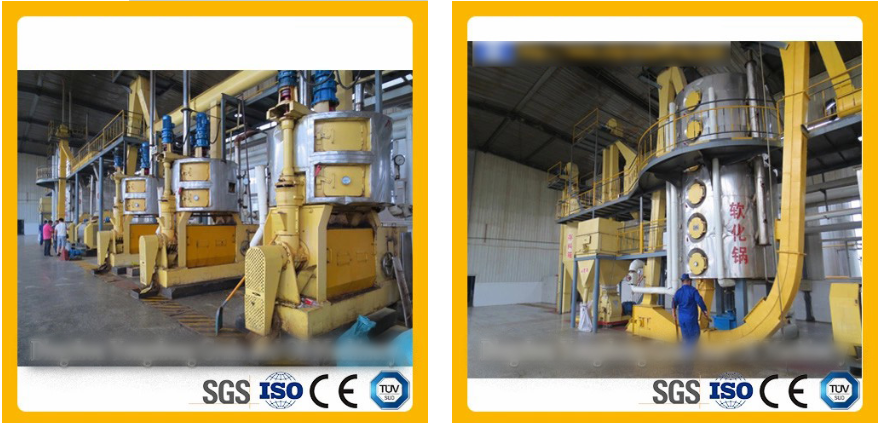Jul . 28, 2024 21:20 Back to list
Exploring the Benefits and Uses of Palm Kernel Oil in Culinary and Industrial Applications
The Significance of Palm Kernel Oil Pressing in Sustainable Agriculture
In recent years, the demand for palm kernel oil has surged, driven by its diverse applications in food, cosmetics, and industrial products. This versatile oil is extracted from the seeds of the oil palm tree, and its production plays a crucial role in the agricultural economy of many tropical countries. The pressing of palm kernel oil is not just a mechanical process; it embodies various environmental and socio-economic considerations that are essential for sustainable agriculture.
The process of extracting palm kernel oil begins with the harvesting of palm fruits. These fruits are then processed to separate the kernels from the flesh. Once the kernels are obtained, they are subjected to mechanical pressing. This method of extraction is favored for its efficiency and effectiveness in yielding high-quality oil. A palm kernel oil press operates by applying high pressure to crush the kernels, allowing the oil to flow out while leaving behind a solid residue known as cake. This cake can be repurposed as animal feed or fertilizer, showcasing the zero-waste potential of using palm kernel oil.
One of the significant advantages of palm kernel oil pressing is its contribution to the local economy. Many smallholder farmers rely on the income generated from palm cultivation and oil extraction. By providing the essential infrastructure for pressing, local cooperatives and organizations can empower farmers to improve their livelihoods. Additionally, as the global market for palm kernel oil grows, farmers can find new opportunities for export and trade, further enhancing their economic stability.
palm kernel oil press

However, the expansion of palm oil production has not been without controversy. Deforestation, loss of biodiversity, and the displacement of indigenous communities are critical issues associated with palm oil plantations. To address these challenges, sustainable practices in palm kernel oil pressing are imperative. Certification programs, such as those offered by the Roundtable on Sustainable Palm Oil (RSPO), promote environmentally friendly and socially responsible production practices. These certifications ensure that palm oil is sourced from plantations that maintain forest conservation and uphold workers' rights.
Incorporating sustainable practices in palm kernel oil production can also lead to improved yield and quality. Techniques such as intercropping, agroforestry, and organic farming can enhance soil health and reduce the need for chemical fertilizers and pesticides. By utilizing these methods, farmers can create a more resilient agricultural system that benefits both the environment and their economic well-being.
Moreover, the innovation of technology in palm kernel oil pressing is transforming the industry. Modern pressing machines are designed to optimize oil extraction efficiency and minimize energy consumption. The integration of renewable energy sources, such as solar and biomass, into the pressing process can further reduce the carbon footprint associated with oil production. These advancements not only contribute to sustainability but also position the industry toward a greener future.
In conclusion, the pressing of palm kernel oil represents a key component of sustainable agriculture, with far-reaching implications for environmental conservation and socio-economic development. The challenges posed by traditional palm oil production necessitate a shift towards more responsible practices. By supporting smallholder farmers, promoting sustainable certifications, and embracing technological innovations, the palm kernel oil industry can evolve into a model of sustainability. Such efforts will ensure that the production of palm kernel oil benefits both people and the planet for generations to come.
-
HP 120 Model Cold Oil Press-Hebei Huipin Machinery|Energy Efficiency, Multi-Functionality
NewsAug.18,2025
-
HP 120 Model Cold Oil Press-Hebei Huipin Machinery|Oil Extraction, Multi-Functional
NewsAug.18,2025
-
HP 120 Cold Oil Press - Hebei Huipin | Automation & Efficiency
NewsAug.18,2025
-
Safflower Oil Press Service: Efficient & Quality Extraction
NewsAug.18,2025
-
HP 120 Cold Oil Press-Hebei Huipin Machinery|Oil Extraction, High Efficiency
NewsAug.17,2025
-
HP 120 Cold Oil Press - Hebei Huipin Machinery | High-Efficiency Oil Extraction
NewsAug.17,2025
